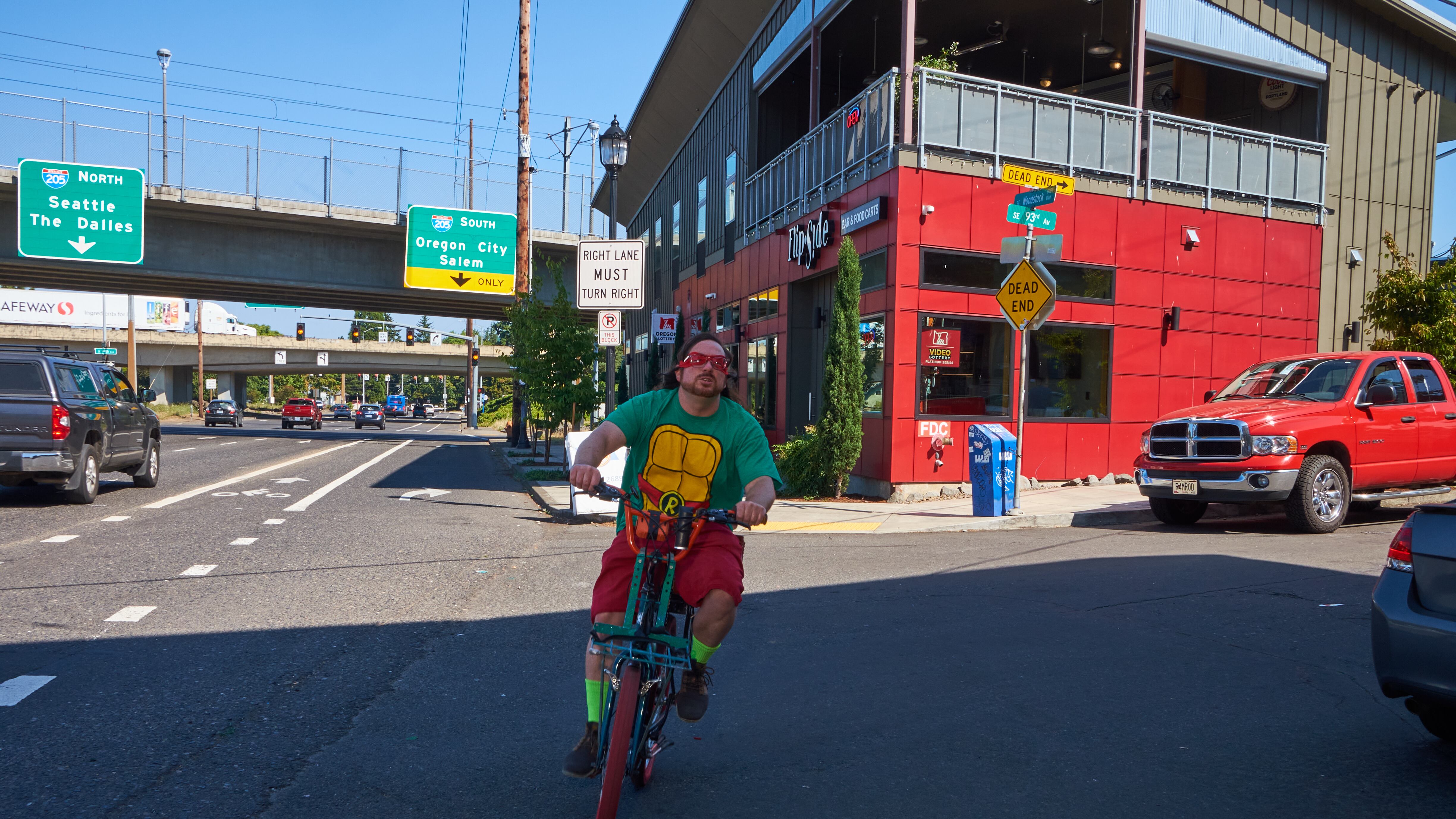Just weeks after Oregon’s deadly, record-breaking heat wave, and as the state is fighting the largest forest fire in the nation, Oregon’s environmental groups are united in calling for a massive overhaul of the state’s transportation systen to address climate change.
“Oregon’s transportation system must evolve beyond a system designed around the efficiency of single vehicle trips to a system that emphasizes the efficient, decarbonized movement of people and goods,” writes Sara Wright, transportation policy director of the Oregon Environmental Council, in a letter to the Oregon Transportation Commission on July 9. (The OTC guides state policy on highways and other transportation.) “We must redesign our transportation system to make transit, biking, and walking the easiest and most accessible forms of transportation, and invest in electrifying the driving that people still have to do.”
The letter is notable because it’s the most dramatic list yet of climate change-related transportation policy demands, from the widest array of Oregon environmental groups. Transportation accounts for roughly 40% of carbon emissions in the state, as it does elsewhere.
The letter is signed by gamut of more than 20 groups—from more establishment environmental groups to the young activists protesting regularly in front of Oregon Department of Transportation’s offices. Among the signatories are 1000 Friends of Oregon, Oregon League of Conservation Voters, Verde, Oregon State Public Interest Research Group, The Street Trust, Sierra Club, Coalition of Communities of Color, Natural Resources Defense Council and No More Freeways PDX.
They call for ODOT to “immediately pause adding new capacity for single occupancy vehicles, including ‘auxiliary lanes,’ and establish a policy of instituting equitable congestion pricing for demand management before adding capacity in order to ensure efficient right-sizing of the system.”
That’s significant because the largest transportation project in the state—a expansion of Interstate 5 in Portland’s Rose Quarter—would add at least an “auxiliary lane” in the Rose Quarter and a fight is still raging over the shape of that project. Even Gov. Kate Brown, who oversees ODOT, has argued that the project must meet climate goals.
Instead, these groups want a halt.
Their demand is that the project be paused until congestion pricing is in place for rush hours on interstate highways. That policy discourages driving during peak traffic hours by requiring drivers to pay.
“Climate and equitable outcomes must be immediately prioritized — not just incorporated — in all ODOT decision-making, including all new investments and the development of new pricing tools. While this shift would take years to fully implement, there are many immediate actions ODOT could take,” the letter states.
Among their suggestions:
" ● Implement the Oregon Bicycle and Pedestrian Plan by 2035. ....
● Prioritize investment in ODOT facilities in communities across the state (“orphan highways”) to improve safety for humans and make it easier to travel by biking and walking...
● Review all current and future projects for impacts on Vehicle Miles Traveled (VMT) and greenhouse gas emissions, and prioritize projects, plans and investments that reduce VMT and emissions the most....
● Invest in infrastructure on ODOT facilities that gets buses out of congestion, and makes it safer and more comfortable to get to, wait for, and ride on transit.
● Plan and implement improvements and expansion to build a robust network of safe, convenient, reliable, frequent and affordable rail and/or bus connections between communities across the state.”
Wright says that the recent heatwave didn’t cause her fresh despair; she’s been well aware of the problem of climate change.
“I’m an outlier because I’ve already been in that place,” she says. “What I’m most afraid of is that humans are enormously flexible, and that we’ll just accept this as the new normal and we won’t take this opportunity to do something different.”

